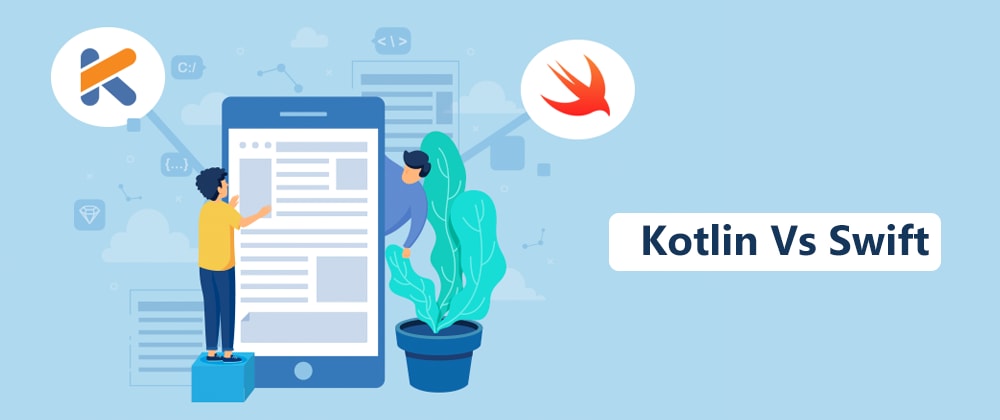Kotlin and Swift based app development have attracted far and wide many enterprises and SME’s towards building mobile apps globally. Unanimously their roles in mobile apps developments can be felt in many different mobile platforms. Despite both Kotlin and Swift being relatively newer they have their work shared exceptionally well in Android and iOS App Development Companies. Beyond their apps getting built across contrast and distinct languages they do have some similarities in app developments.
Introduction to Kotlin
Kotlin language has lot surpassed Java developments and have found its niche for Android App Development within many companies. It is an open source language based on Java Virtual Machine that is easier to learn and faster to build applications.
Introduction to Swift
The beginning of Swift Programming has almost led to become itself as a default language for building iOS App Developments. Swift is a compiled language that has evolved a lot over iOS App Development and have many upgraded versions to it.
Explained below are some of the differences and similarities of Kotlin and Swift Mobile Apps Developments:
1. Common Coding Processes
Together Kotlin and Swift language have pretty much the same level of coding process. With the introduction to latest gadgets, operating systems and apps stores, results to the development of mobile apps which work faster and quicker, consuming only a lesser no of programming codes. However for Kotlin the Integrated Development Environment will be Android Studio and for Swift OS it would be XCode Development.
2. Differences in building Complex Designs
Custom App designs can be built easier through using Kotlin and it requires an advanced knowledge level in Swift programming to build such complex designs. Android Kotlin built apps have segmented designs only within different mobiles while Swift apps behave variably throughout different OS versions and mobiles. On its contrary designing simple visuals, minimalistic approaches, geometric icons and affixing switchers within mobile apps does not vary between Kotlin and Swift either.
3. Kotlin is responsive than Swift in App Stores
The responses for Kotlin made apps are liberal in App Store and it also leads to finding of free space for the app developer. Whereas with Swift App the performance is not always speedy and sometimes it even gets rejected. All the user activities are monitored and discovered by App Store review team that’s well aware of the nitty-gritty elements of the mobile apps. Thus, Kotlin gets the upper hand for being the most matured and rebuilt applications surviving the future.
4. Kotlin and Swift have equal Target Audiences
According to the researched customer base acquainted from app store, both Kotlin and Swift based mobile apps have attracted equal range of users. Generally the Onboarding processes for Kotlin and Swift have not distinctly created any differences in the target audiences. It also infers to the decisions of developing more mature products in an acute way.
5. Monetization Benefits
Monetization can be understood by relating the differences in target audience with respect to money generation techniques processed in App Stores. Kotlin and Swift Apps have similar monetization growth and nearly have the same number of targeted audiences for buying mobile applications too.
Conclusion
The trending for app development is superfluous with adequate no of mobile apps built these days that it leaves no technologies or programming languages to be left unexplored. Similarly, Android Kotlin and iOS Swift are now considered to be the most formidable languages for mobile apps developments. More so in near future will Kotlin and Swift language would get merged into Cross-Platform Development for the convenience of Android and iOS app developers.







Top comments (0)